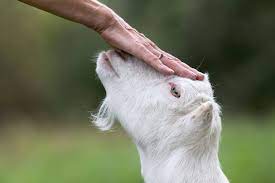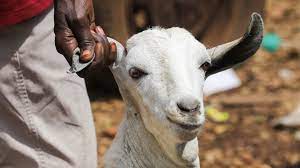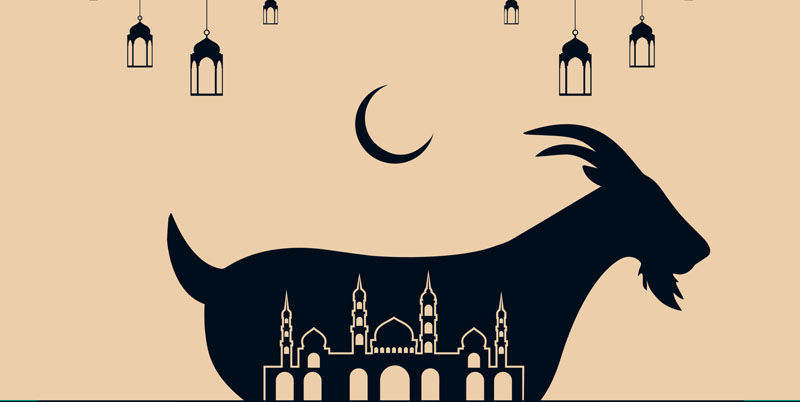Qurbani, also known as Udhiyah, is a significant ritual in Islam performed by Muslims around the world. It holds a deep spiritual and symbolic meaning, representing devotion, sacrifice, and gratitude towards Allah. This article aims to provide a comprehensive understanding of Qurbani in Islam, its significance, procedures, and the wisdom behind it.
What is Qurbani?

Qurbani, derived from the Arabic word “Qurban,” means sacrifice. It refers to the act of offering an animal as a sacrifice to Allah during the Islamic month of Dhul Hijjah, specifically on the days of Eid al-Adha. Muslims commemorate the willingness of Prophet Ibrahim (Abraham) to sacrifice his son Ismail (Ishmael) as an act of obedience to Allah’s command.
The Significance of Qurbani
Qurbani is a highly esteemed act of worship in Islam. It serves as a reminder of Prophet Ibrahim’s unwavering faith and submission to Allah’s will. Muslims observe Qurbani to express their devotion, seek spiritual closeness to Allah, and emulate the profound sacrifice made by Prophet Ibrahim and his son.
Historical Context of Qurbani
The roots of Qurbani trace back to the story of Prophet Ibrahim (Abraham) and his unwavering commitment to Allah’s commands. As a test of his faith, Ibrahim was asked by Allah to sacrifice his beloved son, Ismail (Ishmael). In a complete submission to the divine command, Ibrahim prepared to carry out the sacrifice, but at the last moment, Allah replaced Ismail with a ram, thereby showcasing Ibrahim’s unwavering devotion and willingness to sacrifice everything for the sake of Allah.
Definition and Purpose of Qurbani
Qurbani is performed by sacrificing an animal, such as a sheep, goat, cow, or camel, with the intention of seeking closeness to Allah and gaining spiritual purification. It serves as a symbol of complete surrender and obedience to the will of Allah.
Qurbani in Islamic Teachings

The practice of Qurbani finds mention in the Quran and Hadith, which are integral sources of guidance for Muslims.
References to Qurbani in the Quran and Hadith
The Quran references Prophet Ibrahim’s act of sacrifice in multiple verses, emphasizing the significance of Qurbani as an act of worship and devotion. Additionally, several Hadith narrations provide guidance on the proper methodology and rituals associated with Qurbani, thus highlighting its importance in Islamic teachings.
Read More: Hajj in Islam
Importance of Following the Sunnah
Muslims are encouraged to follow the Sunnah (traditions) of the Prophet Muhammad. The Prophet’s exemplary conduct in performing Qurbani sets the standard for Muslims to emulate. By following the prescribed guidelines and rituals, believers not only fulfill their religious obligations but also draw closer to the Messenger of Allah.
Conditions and Eligibility for Qurbani
Muslims who are eligible to perform Qurbani must meet certain conditions. They should be of sound mind, have reached the age of maturity, and possess the financial means to undertake the sacrifice. Qurbani is obligatory for those who are financially capable, while it is recommended (Sunnah) for those who can afford it but is not mandatory.
Eligibility and Obligations for Individuals
Qurbani is obligatory for financially eligible Muslims who possess the required amount of wealth, known as Nisab. It is a duty for those who meet the criteria, and the act of Qurbani is intended to be an act of worship and a means of seeking Allah’s pleasure.
Criteria for Animals to be Sacrificed
According to Islamic teachings, animals eligible for Qurbani must meet specific criteria. They should be of a certain age, in good health, and free from any physical defects that may render them unfit for sacrifice. The selection and quality of the animal hold significance in ensuring the validity and acceptance of the Qurbani.
Types of Animals for Qurbani
The animals suitable for Qurbani include sheep, goats, cows, and camels. The type of animal varies based on the region and personal preference. In general, goats and sheep are preferred for individual Qurbani, while cows and camels are suitable for joint Qurbani, where multiple individuals contribute towards the sacrifice.
The Procedure of Qurbani
Performing Qurbani involves specific guidelines and steps. The person offering the sacrifice should ensure the animal is healthy, free from defects, and meets the age requirements. On the day of Eid al-Adha, after the congregational prayer, the individual pronounces the name of Allah and utters the intention for Qurbani before slaughtering the animal. The meat is then distributed among the family, friends, and the less fortunate.
Distribution of Qurbani Meat
One of the significant aspects of Qurbani is the distribution of meat to those in need. The meat from the sacrificed animal is divided into three portions: one for the family, one for relatives and friends, and one for the poor and underprivileged. This practice emphasizes the importance of charity and sharing blessings with others.
The Spiritual Essence of Qurbani

Qurbani holds a deep spiritual essence in Islam. It symbolizes selflessness, obedience, and sacrifice. It reminds Muslims of their responsibilities towards Allah and humanity. By sacrificing an animal, individuals learn the virtue of giving up something they value for the sake of Allah, promoting humility and gratitude.
Lessons and Reflections from Qurbani
Qurbani imparts valuable lessons and reflections for Muslims. It teaches patience, trust in Allah’s plan, and the rewards of obedience. The act of sacrificing an animal helps individuals recognize the blessings bestowed upon them and reinforces the concept of gratitude and appreciation.
Common Misconceptions about Qurbani
There are some misconceptions associated with Qurbani that need clarification. One misconception is that the act itself brings forgiveness of sins. However, it is important to understand that only sincere repentance and good deeds can lead to forgiveness. Qurbani serves as a symbol of devotion and gratitude rather than a direct means of absolution.
Qurbani and Charity
Qurbani and charity go hand in hand. The distribution of Qurbani meat to the less fortunate enables Muslims to fulfill their obligations towards those in need. It is an opportunity to alleviate hunger, share blessings, and strengthen the bonds of compassion and brotherhood within the community.
The Global Impact of Qurbani
Qurbani holds immense significance on a global scale. Muslims from various countries and backgrounds come together to perform this sacred act, fostering unity and solidarity. The collective effort made by Muslims worldwide during Qurbani showcases the universal nature of Islam and its emphasis on humanitarian values.
Recommended Reading: The Day of Arafat
Qurbani in the Modern World
In the modern world, Qurbani has evolved to adapt to the changing circumstances and technological advancements. Online platforms and charitable organizations facilitate the process of performing Qurbani and ensure that the meat reaches those in need, even in remote areas. This development has made Qurbani more accessible and efficient.
Qurbani and the Spirit of Unity
Qurbani promotes unity among Muslims, as it is a shared practice performed by believers globally. Regardless of cultural or geographical differences, Muslims participate in Qurbani, emphasizing the universal bond of faith and the importance of standing together as one Ummah (community).
FAQs
Is Qurbani mandatory for all Muslims?
No, Qurbani is obligatory for those Muslims who are financially capable. However, it is recommended for those who can afford it but is not mandatory.
What animals can be sacrificed for Qurbani?
Sheep, goats, cows, and camels are the animals commonly sacrificed for Qurbani.
Can Qurbani be performed on behalf of someone else?
Yes, it is permissible to perform Qurbani on behalf of deceased family members, as well as those who are unable to perform it themselves.
How is the meat from Qurbani distributed?
The meat from Qurbani is divided into three portions: one for the family, one for relatives and friends, and one for the poor and underprivileged.
Can Qurbani be performed in any month?
No, Qurbani is performed specifically during the Islamic month of Dhul Hijjah, on the days of Eid al-Adha.
Conclusion
Qurbani holds profound significance in Islam, symbolizing devotion, sacrifice, and gratitude. It commemorates the obedience of Prophet Ibrahim and Ismail and serves as a reminder of the importance of submitting to Allah’s will. Through Qurbani, Muslims deepen their spirituality, foster compassion, and contribute to the well-being of their communities.


